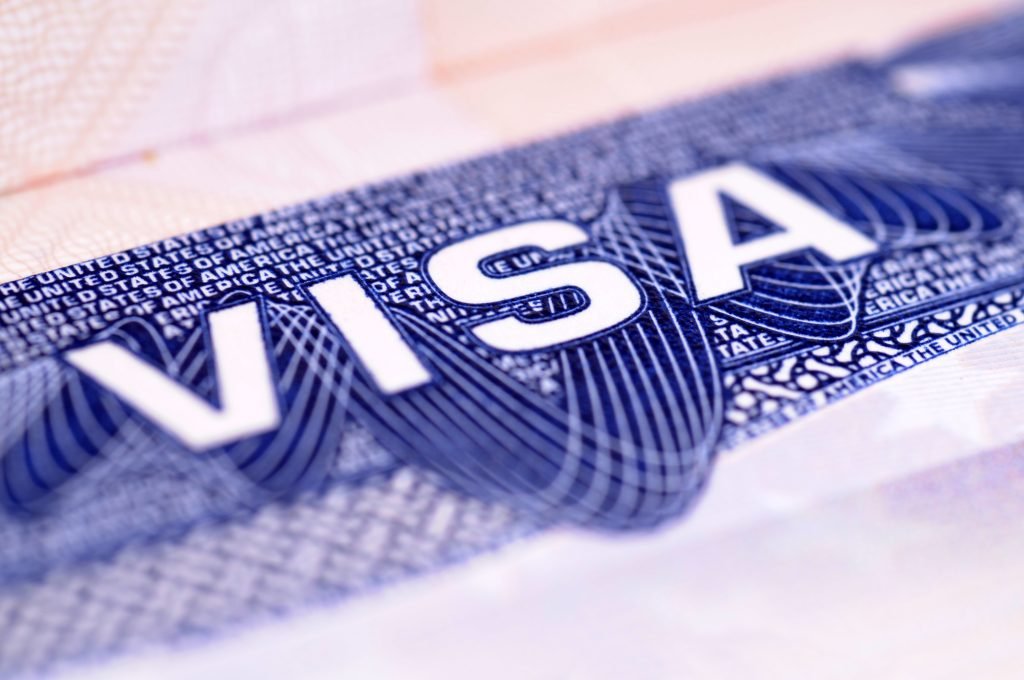“How long can I stay in Portugal without a Visa? I am a non-EU citizen who came to Portugal for 90 days in 180 days period temporary visa and I can’t bear to leave Portugal yet. I intend to stay longer or may even apply for permanent residency.”
You may go through this dilemma and wish to seek alternative ways and procedures to extend your stay in Portugal. Fortunately, there are several options available that can allow you to stay in the country for longer periods. In this post, we will look at a few potential options for non-EU citizens who want to spend more than three months in Portugal.
Portugal’s breathtaking scenery, rich history, and vibrant culture attract visitors from all over the world. Understanding the visa requirements is critical, whether you’re planning a short trip or a longer adventure. Here’s an overview of Portugal’s visa alternatives and requirements, including the answer to “How long can I stay in Portugal without a Visa, and how to prolong my stay?”

What is a Schengen Visa?
Portugal is a member of the Schengen Area, a group of 26 European nations that allow for free movement of persons between them and adhere to the established norms governing visa-free stays. For many nations, this implies they can spend up to 90 days in Portugal within 180 days. This rule is relevant to a variety of situations, including tourism, business trips, and family visits.
If you are comfortable with spending no more than 90 days in Portugal in a 180-day period, there is no immediate need to apply for further visas or go through any complicated procedures questioning about how long can I stay in Portugal without a visa. Non-EU citizens are permitted to stay in the Schengen Area for 90 days out of every 180 days, according to Schengen Visa requirements. This means you can come and leave for up to three months in Portugal without having to apply for any additional permissions or file taxes.
So, ‘How Long Can I Stay In Portugal Without A Visa?’ Come to Portugal for 90 days, leave for 90, and return for another 90. You don’t necessarily have to return home. You may spend those 90 days in an EU country that is not in the Schengen Area, such as Ireland, Romania, or Bulgaria, or in the UK, which is no longer a member of the EU. It is not ideal, but it is usually the simplest solution.

Ways to extend Visa for non-EU citizens
1. Youth Mobility Visa for a working holiday
Citizens of Argentina, Australia, Canada, Chile, Japan, New Zealand, Peru, South Korea, and the United States can apply for Youth Mobility Visas, which are effectively working holiday visas. Citizens can visit Portugal for up to a year as tourists and work for up to six months throughout their stay. Holders of this visa must be between the ages of 18 and 30 (31 in Peru and Australia, 35 in Canada), and they must provide a return ticket as well as proof of appropriate cash for the duration of their stay. This visa cannot be extended and is only granted once per person.
2. The new ETIAS scheme in 2024
The EU has finally agreed on a key adjustment that would affect some passengers visiting Portugal and other EU countries. A new visa-waiver scheme known as ETIAS (which stands for the European Travel Information and Authorisation System) will go into effect in mid-2024; originally intended for May 2023, it has been moved back to an undetermined date in 2024.
In essence, ETIAS substitutes the visa-free travel option for non-Schengen Area tourists. Citizens of the United States, the United Kingdom, Canada, Australia, New Zealand, and more than 50 other countries must complete an ETIAS travel permit prior to arrival. That entails completing an online form, providing passport information, and paying a nominal charge (about €7 per passenger). The official authorization will then be delivered via email, with most applicants receiving approval within an hour. The standard rules apply here: you can stay for up to 90 days in a 180-day period.
It is important to note that this has no effect on nationals of nations that previously required visas; the process remains unchanged. Similarly, no changes have occurred for Schengen Area citizens and residents who are exempt from ETIAS criteria. A complete list of nationalities required to apply for an ETIAS visa is available here.
3. D1 Visa – Work Visa
The D1 visa is for those who plan to work in the country for Portuguese companies for more than a year. To apply for this visa, you must first have an employment contract or a promise of a contract (for subordinate labor) or a service contract (for self-employed professionals).
Non-EU/EFTA nationals seeking job possibilities in Portugal must first get a Work Visa. Whether you’re looking for a short job or a long-term position, this temporary work visa gives you the legal right to work in Portugal.
The application process involves:
- Obtaining a job contract for at least one year.
- Meeting certain skill standards.
- Earning at least 2.5 times the statutory minimum.
- In addition, you will need to submit basic documents such as a valid passport and proof of payment of application costs.
4. D2 Visa – Entrepreneur Visa
Portugal is continually evolving, with a strong economy and thriving tourism: beginning a business in the country can be a wise move, as well as an ideal means to secure a residence card.
It is vital to offer a business strategy that demonstrates the company’s social, scientific, technological, or cultural importance to the country. Opening a corporation in Portugal does not guarantee that a visa will be granted.
When applying for a D2 visa for self-employed professionals, you must produce an employment contract or a written proposal for a contract to supply services in a liberal profession. In addition, it is recommended that you already have a Portuguese tax identity number and have issued invoices.

5. Study Visa
The Study Visa is ideal for students looking to further their studies in Portugal. It serves students from approved schools in both short-term and long-term programs. It doesn’t matter how old or what you do. Studying in Portugal may be both a terrific career investment and a fantastic personal experience! It is also the quickest, simplest, and most affordable option to legally migrate to the country. If you intend to study in Portugal for longer than a year, you must apply for a Study Visa. This might be a D4 or D5 visa, depending on your circumstances.
The application procedure requires confirmation of acceptance into a course or school, such as a written letter from a recognized institution. For higher-level academic courses, documentation of meeting the admissions criteria may be required.
6. The Golden Visa
If you want the flexibility to figure, ‘How Long Can I Stay In Portugal Without A Visa’ for more than three months in a row and want the simplest alternative, the Golden Visa program is worth considering. Non-EU citizens who make a qualifying investment in Portugal can apply for the Golden Visa program, which leads to residency and eventually citizenship. However, it’s vital to know that this program may be ending in 2023, so act quickly.
Why the golden visa? Because you only need to spend an average of 7 days a year in Portugal, but you can spend more if you want. The golden visa is exceptional in this regard, as other visas require you to spend 6-8 months of the year in Portugal.
Investing in real estate will no longer be possible by late 2023. It is projected that investing in funds would become the most popular investment option, but it is not the only way to earn the golden visa. The Golden Visa visa is issued for investment activity in the country. In Portugal, this investment must be at least 250,000 euros and held for five years.
Investment and contribution options:
Funds (such as a venture capital fund): €500,000.
Donation to Portugal’s Arts & Culture sector: €250,000.
Creation of 10 jobs: No minimum amount.
Company Incorporation & Creation of 5 jobs: €500,000.
Investment in research (such as scientific research): €500,000.
There is one caveat: you can only live in Portugal if you keep your investment. If the transfer is long-term, you can still live in your native country; you only need to remain in Portugal for 7 days every year. Ideal for international investors. After five years, you may apply for Portuguese citizenship or a permanent residency permit. No surprise the Golden Visa Portugal program is regarded as one of the most appealing in the world!
Once approved, applicants are issued a Portuguese resident permit, which allows them and their families to gain residency rights in the nation. This program also provides a road to full citizenship, making it an attractive option for investors.
7. Digital Nomad Visa
The Digital Nomad Visa in Portugal is intended for remote workers and freelancers from non-EU nations. This visa stresses the ability to work remotely and has specific financial eligibility conditions when compared to other Portuguese visas.
Applicants must have a monthly income of at least €3,040 and keep a savings account with a minimum balance of €36,480.
How Long Can I Stay In Portugal Without A Visa?
Once you’ve established yourself in Portugal from any of the above visa options, you could consider more permanent choices, such as obtaining residency or citizenship. Whether you are an EU/EFTA or non-EU/EFTA national, you can seek residency and, eventually, citizenship in Portugal using established procedures.
After you’ve obtained your visa and arrived in Portugal, you’ll need to take some more procedures to truly settle in. For starters, if you intend to stay in Portugal for more than 90 days, you will need to apply for either a registration certificate or a resident permit, depending on your nationality and visa type. Non-EU/EFTA nationals must first get a temporary residence visa and maintain that status for five years.
Another important step is to obtain an NIF (tax identification number). This number is required for conducting official transactions and activities within the country. To obtain an NIF, apply in person at the local Finanças (Portuguese tax office).
If you overstay your visa, the authorities will reprimand you, potentially preventing you from obtaining future visas. Sanctions may include fines, deportation, bans, or a combination of the three. Keep in mind that the visa begins counting the moment the embassy in your country issues it, and your visit period begins when you arrive in Portugal or any other Schengen nation.





